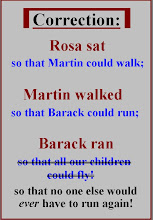 |
| Support Geert Wilders and the Dutch Freedom Party. |
While perusing 19th century numbers of The Contemporary Review for an unrelated purpose, your faithful correspondent happened upon an article that throws interesting light on Muslim attitudes towards non-believers. “The Constantinople Massacre and its Lesson” (McColl, C. 1895. Contemp. Rev. 68: 744-760) recounts the murder by urban mobs and police of Armenians demonstrating against the persecution of their co-religionists in the Turkish countryside. What is so interesting about this essay, which was written some twenty years before the fact, is its description of the context in which the subsequent genocide would transpire. Here are some particulars that may be compared with conditions today in countries such as Egypt, Iran and Saudi Arabia:
- The term “Rayah,” we learn, “is the common designation of Christians, Jews and Parsees in Turkey. It means a flock – very appropriately, since the non-Mussulman [non-Muslim] subjects of the Sultan are regarded and treated by their rulers as a flock of defenceless [sic] sheep, whose raison d’etre is to be fleeced or slaughtered at the discretion of their masters.”
- “The sacred law of Islam forbids the murder of a Rayah who has paid his yearly ransom for the right to live and is otherwise innocent; but it declares … that if, nevertheless, a true believer should deliberately kill a Rayah the murderer is not to be punished in any way.”
- “Purely Christian evidence is inadmissible, and a Muslim will not give evidence in favor of a Christian against a true believer;”
- “They [non-Muslims] are forbidden to have arms of any kind.”
- “They [non-Muslims] are obliged by law to give three days’ gratuitous hospitality to any Mussulman official or traveler who demands it: … from a pasha to a beggar.”
- “The [non-Muslim] peasantry pay their taxes in kind, which amounts in all to more than 60 per cent of the produce.”
- “Rayahs are … subject to forced labour at the bidding of the local authorities and landlords.”
- “They [non-Muslims] are required to wear a peculiar dress, to mark them off from the Muslims.”
- “They [non-Muslims] are forbidden to ride horses, but may ride donkeys, from which, however, they must dismount when they meet a Muslim.”
- “By the unchangeable law of Islam, Jews are forbidden to build synagogues and Christians churches. They may repair old buildings, but on the same site and of the same dimensions. And even for this they must obtain a firman [administrative order] from Constantinople. … The churches must have no bells, for fear of offending the religious sensibilities of the Mussulmans; and for the same reason there must be no singing inside churches or synagogues, or lamentation or singing at funerals.”
- “Apostasy from Islam is death alike to converter and converted. On the other hand, it is a penal crime for a Jew or Christian to dissuade a friend or relation from becoming a Mohammedan.”
- “The most opprobrious language is applied in official language and courts of justice to Christians and Jews. They are called ‘dogs’ and ‘pigs,’ and in burial certificates … are said not to be ‘dead,’ but ‘damned.’ … Here is a burial certificate, attested by a British Ambassador.
‘We certify to the priest of the Church of Mary (in Armenia) that the impure, putrid, stinking carcase of ________, damned this day, may be concealed under ground.’” [Emphasis added]
In 1895, the Ottoman Empire still included European territories west of the capital, much of North Africa, the Levant, as well as the livable fringes of the Arabian Desert. So it is difficult to argue that the conditions described by McColl were restricted to some Anatolian backwater.
Since 9-11, Muslim attitudes toward, and treatment of, non-believers have been the subject of much discussion. What brought this correspondent up sharp was, not the above-listed particulars, with which he was largely familiar - see, for example, a recent speech by Geert Wilders (photograph above) linked here or, more extensively, The Dhimmi: Jews and Christians under Islam - but their enumeration in an essay published long before contemporary Jihadist invective against Great and Little Satans. For those who would portray the Caliphate’s would-be resurrectors as outside Islamic cultural and religious norms, McColl’s essay offers sobering counterpoint.












No comments:
Post a Comment